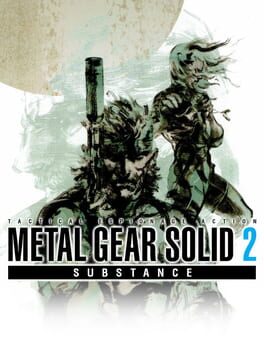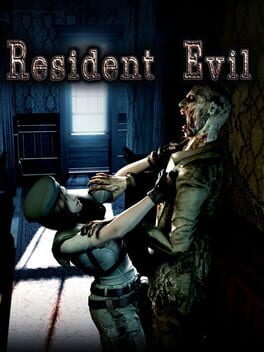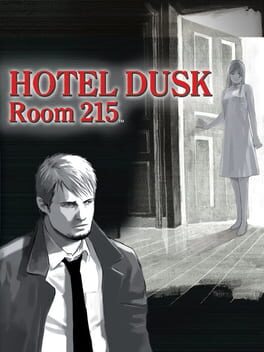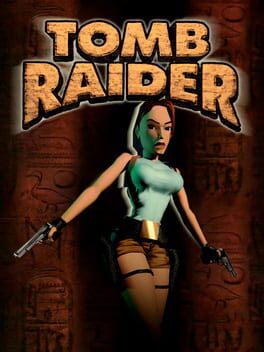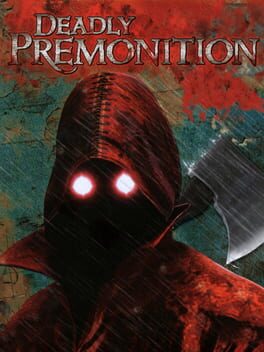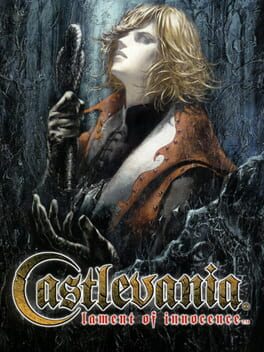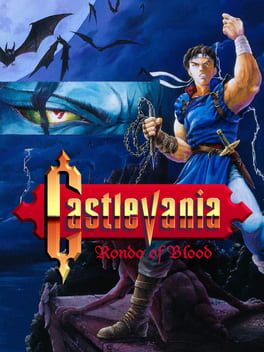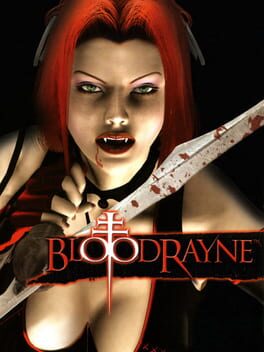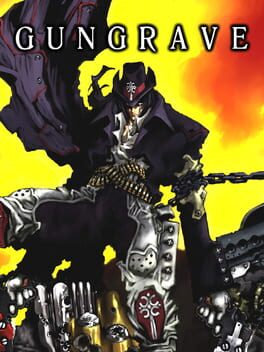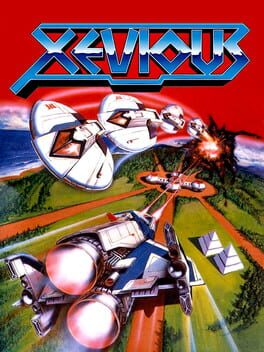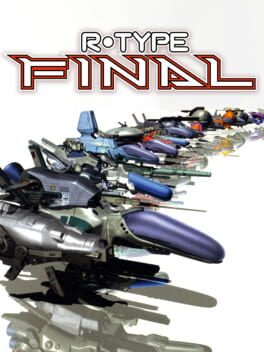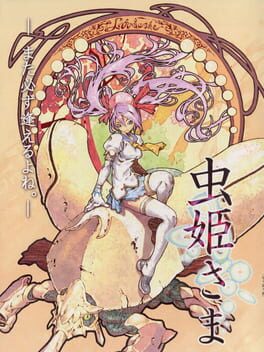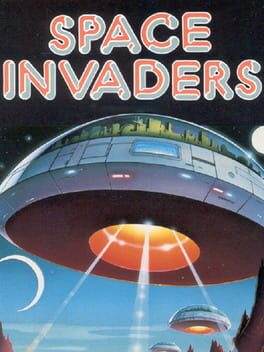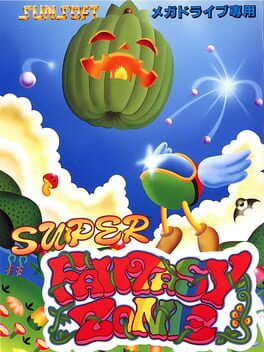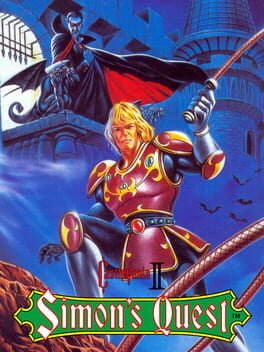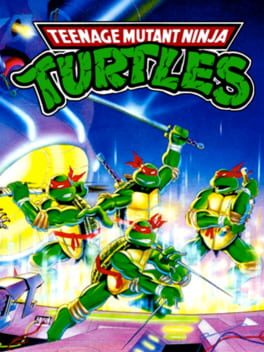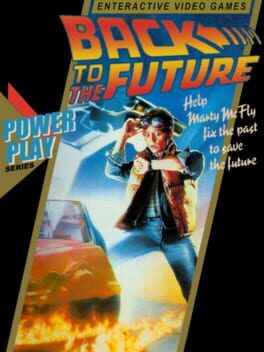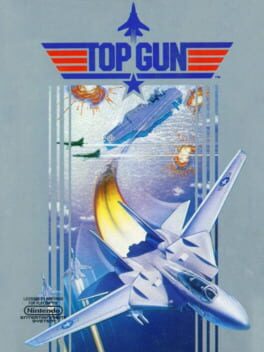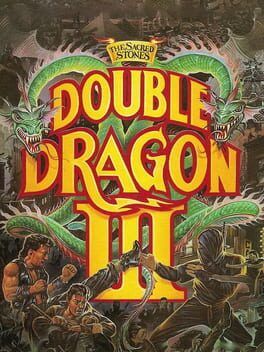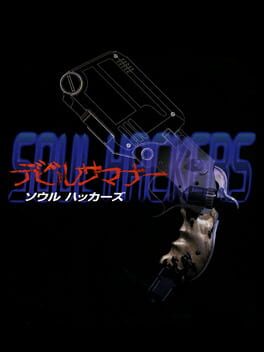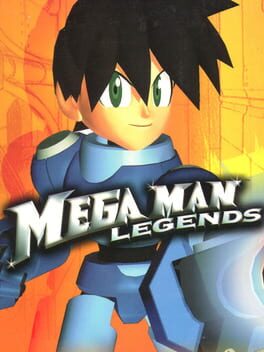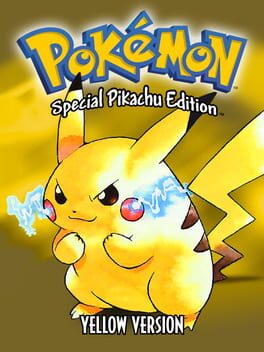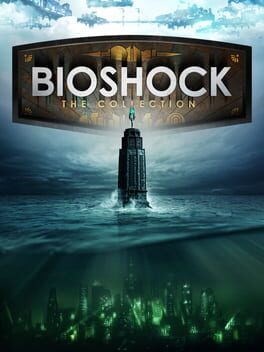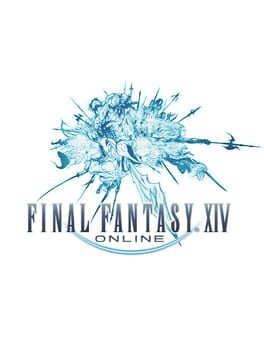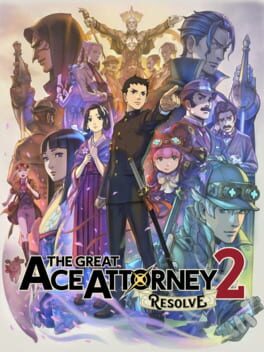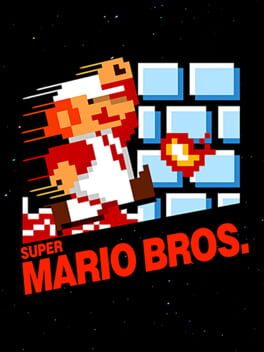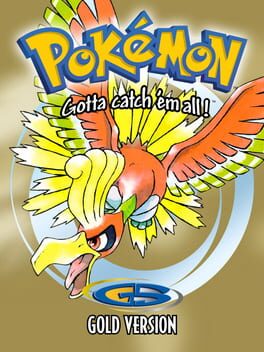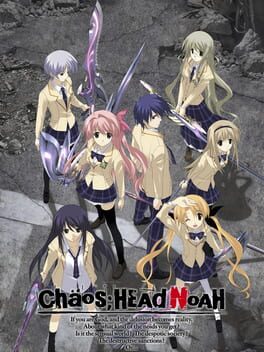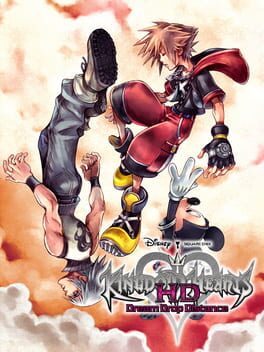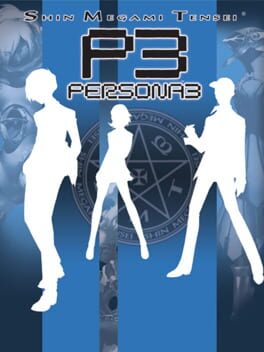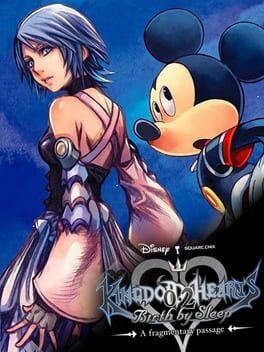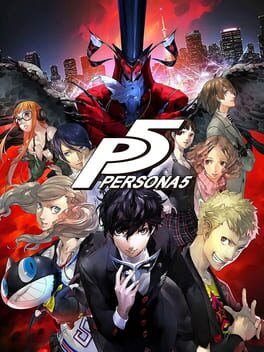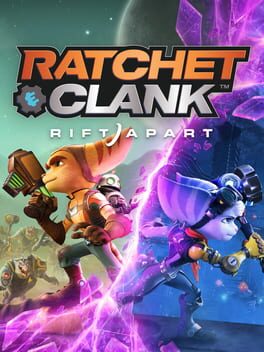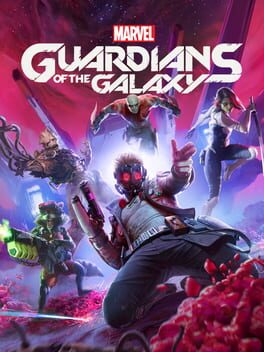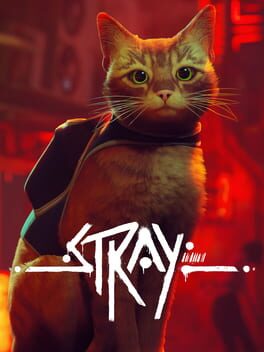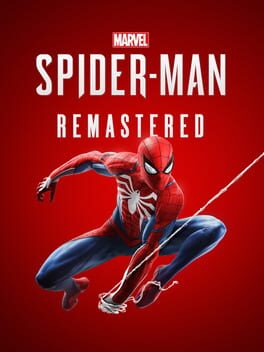ziopera0
479 reviews liked by ziopera0
Incredible game, and one that was very prophetic for it's time. It's really subversive, and has a lot of great, impactful, and deep themes. Also has one of the coolest villains in the series. That being said, it's my personal least favorite of the main Solid series (other than maybe V), which really goes to show just how amazing Metal Gear is.
Warning: This essay contains visceral descriptions of mental illness. What was initially intended as more of a critique of The Last of Us Part 2’s narrative became something much more personal, and I don’t want to give a false impression of what this is based on the website it’s posted to. To reiterate, this is intensely personal. Proceed with caution.
What would you do if your life’s purpose was pulled out from under you? How do we find solace in a world that seems to revel in taking everything it can from you? Is it worth living when stability is the only thing protecting you from cold uncertainty? Fundamentally, these questions define both The Last of Us and The Last of Us Part 2. While these extremely open-ended questions are answered in appropriately differing ways in both games, they are used as the backdrop to frame almost every character action in them. In the same way that Joel’s yearning to maintain the only thing that resembles stability in his life endeared many players to the first game, Ellie’s quest of seemingly aimless vengeance polarized many when playing its sequel. It tests players’ willingness to go through the same things its characters go through rather than taking more than a few safe roads. It helped me realize my own answers to the questions it asks of Joel and Ellie, and it’s difficult for me to go more than a day without thinking about them. I love The Last of Us, but The Last of Us Part 2 is bolder, more poignant, and unforgettable.
Despite this essay primarily being a gushfest about The Last of Us Part 2, I still believe the first game displays a large amount of character complexity, but I think the response to its narrative was born out of a character that one can easily relate to. The only thing that stands between Joel and his closest loved one is three people that are about to kill her. Would you not do the same to preserve the last person tethering you to sanity? Personally, I believe that there are very few people in the world who wouldn’t make the same decision in Joel’s shoes. This isn’t to say that this makes Joel’s character simple or easily read, it makes him painfully human. Through all of the murder and zombies, we all see a bit of ourselves in Joel. Framed ambiguously, this contributed greatly to the success of The Last of Us’s narrative with a wide audience. It was a perfect storm of relatability, shock value, fuel for disingenuous water cooler talk, and just plain good character writing. People talk about the negative effect that The Last of Us had on Triple A games, but as far as I’m concerned, studios should take more cues from its simple yet effective writing.
It seemed to most people that The Last of Us Part 2 was a shot into left field compared to the first game, but where else could the series feasibly go? The events of its narrative are bold for high budget games, but I struggle to think of a more natural continuation from the first game’s story. Joel even foreshadows the events of the second game when he tells Ellie how broken he was after losing Sarah. We’re not privy to the 20 years between Joel’s loss and him meeting Ellie. The theme of retaliation against a brutal world is obscured by this time skip to show its evolution: finding solace in what little mercy the world has given you. In that way, both games in this series represent two sides of the same coin. There is solace to be found in Abby’s part of the game, and her story is kind of like an abridged version of Joel’s story in the first game. This time Naughty Dog even included the part where the character finds little meaning in a path defined by hate, almost to yell at the player what they were supposed to learn from Joel. There is much to be said about Abby and how her life is destroyed in different ways compared to Ellie, but honestly I’m not extremely interested in her as a character. I like it in the same way I like the first game, but it doesn’t affect me in a strong way. Ellie’s story wouldn’t work as well without Abby’s, but its value to me is almost entirely predicated on how it improves Ellie’s character.
Perhaps my initial response to this game was so different because of how I see Ellie. Ellie, in my experience, is the closest any fictional character has ever come to accurately portraying my mental illness. The willingness to go to great lengths to show people that the world can be just as grim to them as it is to you, even at the expense of your own wellbeing, hit impossibly close to home for me. My depression isn’t defined by withdrawal, but lashing out at others so they can feel the same pain I do. The fear that everyone will either abandon me of their own volition, or do so before I make peace with it is one that permeates my waking thoughts. I’m not proud of this urge, as it gnaws its way into the way I interact with others. It imparts a hostility to my interactions with others, as my inert response is that they will leave me or hate me. It doesn’t sit well with me when I gain a sick satisfaction out of pushing people away, and just ending it before I get too attached. The few people that I can’t push away despite my best efforts are the only stability I have, and I’m not sure what I’ll do when I lose them. So when Ellie returns to the world all the violence it has shown her because it took away her stability, it made more sense to me than anything anyone has done in any other story. It spoke to me like no doctor or therapist or counselor has ever come close to doing before. All I needed to know was that I wasn’t alone in what I felt; that all the emotions I feel so ashamed of were validated in a strange way, and done with so much uncomfortable accuracy. When the end of the game revealed its hand, and Ellie was left with exactly what she had feared the most, I felt more fear than I had in any enemy encounter. It was as if the writers of the game dispelled the facade with which they were communicating to me through, and told me the bitter truth of my life. This game’s narrative certainly didn’t fix me, but it allowed me to accept that I’m not the only person who bears this curse. It’s the curse of remembering people through their polar moments, only recognizing the best and worst that someone has shown you. It’s focusing on that bad until you lose them, and then reaching out desperately for the good that you ignored the whole way.
I’ve attempted to rationalize The Last of Us Part 2 being my favorite game through the lens of its holistic qualities, believing that its characters, themes, and gameplay were markedly better than many of its competitors. It was my attempt to bridge the gap between what I knew as the most profoundly touching piece of media I had ever consumed, and what most others saw as a solid third person action game. The truth is that for most people, that’s exactly what this game will be. Like most Naughty Dog games, its appeal comes from the combination of many things done well. There will always be a stealth game with more depth, a more complex character study, and a more focused narrative. It’s easy to be ashamed of a story you like almost strictly based on its emotional resonance with you. Recognizing that it’s that story’s ability to reach out and comfort you beyond the very text that contains it is when you let go of that shame, and it’s where that story’s true value lies. Allow yourself to love and be loved by the stories you read and the characters you meet.
What would you do if your life’s purpose was pulled out from under you? How do we find solace in a world that seems to revel in taking everything it can from you? Is it worth living when stability is the only thing protecting you from cold uncertainty? Fundamentally, these questions define both The Last of Us and The Last of Us Part 2. While these extremely open-ended questions are answered in appropriately differing ways in both games, they are used as the backdrop to frame almost every character action in them. In the same way that Joel’s yearning to maintain the only thing that resembles stability in his life endeared many players to the first game, Ellie’s quest of seemingly aimless vengeance polarized many when playing its sequel. It tests players’ willingness to go through the same things its characters go through rather than taking more than a few safe roads. It helped me realize my own answers to the questions it asks of Joel and Ellie, and it’s difficult for me to go more than a day without thinking about them. I love The Last of Us, but The Last of Us Part 2 is bolder, more poignant, and unforgettable.
Despite this essay primarily being a gushfest about The Last of Us Part 2, I still believe the first game displays a large amount of character complexity, but I think the response to its narrative was born out of a character that one can easily relate to. The only thing that stands between Joel and his closest loved one is three people that are about to kill her. Would you not do the same to preserve the last person tethering you to sanity? Personally, I believe that there are very few people in the world who wouldn’t make the same decision in Joel’s shoes. This isn’t to say that this makes Joel’s character simple or easily read, it makes him painfully human. Through all of the murder and zombies, we all see a bit of ourselves in Joel. Framed ambiguously, this contributed greatly to the success of The Last of Us’s narrative with a wide audience. It was a perfect storm of relatability, shock value, fuel for disingenuous water cooler talk, and just plain good character writing. People talk about the negative effect that The Last of Us had on Triple A games, but as far as I’m concerned, studios should take more cues from its simple yet effective writing.
It seemed to most people that The Last of Us Part 2 was a shot into left field compared to the first game, but where else could the series feasibly go? The events of its narrative are bold for high budget games, but I struggle to think of a more natural continuation from the first game’s story. Joel even foreshadows the events of the second game when he tells Ellie how broken he was after losing Sarah. We’re not privy to the 20 years between Joel’s loss and him meeting Ellie. The theme of retaliation against a brutal world is obscured by this time skip to show its evolution: finding solace in what little mercy the world has given you. In that way, both games in this series represent two sides of the same coin. There is solace to be found in Abby’s part of the game, and her story is kind of like an abridged version of Joel’s story in the first game. This time Naughty Dog even included the part where the character finds little meaning in a path defined by hate, almost to yell at the player what they were supposed to learn from Joel. There is much to be said about Abby and how her life is destroyed in different ways compared to Ellie, but honestly I’m not extremely interested in her as a character. I like it in the same way I like the first game, but it doesn’t affect me in a strong way. Ellie’s story wouldn’t work as well without Abby’s, but its value to me is almost entirely predicated on how it improves Ellie’s character.
Perhaps my initial response to this game was so different because of how I see Ellie. Ellie, in my experience, is the closest any fictional character has ever come to accurately portraying my mental illness. The willingness to go to great lengths to show people that the world can be just as grim to them as it is to you, even at the expense of your own wellbeing, hit impossibly close to home for me. My depression isn’t defined by withdrawal, but lashing out at others so they can feel the same pain I do. The fear that everyone will either abandon me of their own volition, or do so before I make peace with it is one that permeates my waking thoughts. I’m not proud of this urge, as it gnaws its way into the way I interact with others. It imparts a hostility to my interactions with others, as my inert response is that they will leave me or hate me. It doesn’t sit well with me when I gain a sick satisfaction out of pushing people away, and just ending it before I get too attached. The few people that I can’t push away despite my best efforts are the only stability I have, and I’m not sure what I’ll do when I lose them. So when Ellie returns to the world all the violence it has shown her because it took away her stability, it made more sense to me than anything anyone has done in any other story. It spoke to me like no doctor or therapist or counselor has ever come close to doing before. All I needed to know was that I wasn’t alone in what I felt; that all the emotions I feel so ashamed of were validated in a strange way, and done with so much uncomfortable accuracy. When the end of the game revealed its hand, and Ellie was left with exactly what she had feared the most, I felt more fear than I had in any enemy encounter. It was as if the writers of the game dispelled the facade with which they were communicating to me through, and told me the bitter truth of my life. This game’s narrative certainly didn’t fix me, but it allowed me to accept that I’m not the only person who bears this curse. It’s the curse of remembering people through their polar moments, only recognizing the best and worst that someone has shown you. It’s focusing on that bad until you lose them, and then reaching out desperately for the good that you ignored the whole way.
I’ve attempted to rationalize The Last of Us Part 2 being my favorite game through the lens of its holistic qualities, believing that its characters, themes, and gameplay were markedly better than many of its competitors. It was my attempt to bridge the gap between what I knew as the most profoundly touching piece of media I had ever consumed, and what most others saw as a solid third person action game. The truth is that for most people, that’s exactly what this game will be. Like most Naughty Dog games, its appeal comes from the combination of many things done well. There will always be a stealth game with more depth, a more complex character study, and a more focused narrative. It’s easy to be ashamed of a story you like almost strictly based on its emotional resonance with you. Recognizing that it’s that story’s ability to reach out and comfort you beyond the very text that contains it is when you let go of that shame, and it’s where that story’s true value lies. Allow yourself to love and be loved by the stories you read and the characters you meet.
Beat this game like three times. It's one of my favourites ever. There is a lot of writing about this game out there from people far more eloquent than me you can read about. This is a game chances are you already have an opinion about anyway.
It's just very free. The systems interact in a delightful way nothing else has been able to hit for me. The Master Quest version really pushed me to play creatively. All timer.
It's just very free. The systems interact in a delightful way nothing else has been able to hit for me. The Master Quest version really pushed me to play creatively. All timer.
This review contains spoilers
i just broke down crying explaining to my dad why watching this giant dragon slowly meandering through the sky and into a lake completely out of nowhere filled me with an acute awareness of my own insignificance and an indiscriminate love and pathos for the natural world and if that doesnt speak to this game's effortlessly ubiquitous beauty then idk what will
The wind meets me here.
I stand above a land of rolling green, the breeze carries with it a melody and the sound of howling laughter. The faint smell of a roaring campfire dances past.
I leap, and the air catches me in its embrace. Tugging ever so gently on my glider, the valley below rises to greet me. I follow the melody to an old stable, and wooden planks creak as I make my way past the smiling faces of its many patrons. Just outside a dog barks, and a guitar continues to enchant a gathered crowd.
I’m told I was asleep. One hundred years stretch between my visits to this valley. I watch as sun vines pierce the clouds above, and I wonder how I could have possibly forgotten something so beautiful.
I’m told I failed. Allies perished. “End times.” Calamity hangs aloft these days, you can see it with your own two eyes. They tell me this with heads bowed low.
And yet here I sit, eating a stew comprised of the few edible materials I could scrounge together in my short journey thus far, and I am welcomed by these people with open arms. They surround me with their tales and with their tidings. They offer advice, and they offer supplies. Not a shard of malice rests in the eyes of the stable bearers, nor those stopping for a well-earned rest on journeys of their own. Before the sun has set I am prepared for the road ahead, my bags are filled with many a token of kindness. The last of the day’s light once cast an orange hue upon these strangers, but I now find myself among friends as the moon joins in our festivities.
This does not feel like a world torn asunder.
This does not feel like an apocalypse.
Or perhaps, this is exactly what it should feel like. When all is lost, do those who remain not fortify themselves with the aid of those around them? We look ahead across the fields before us, and we can see it from the ground upon which we sit: The Castle. It splits up through the earth and into the aether like an ever-present colossus, an imposing monolith against the glittering horizon.
And do we not all see a dark shroud moves within its walls? Do we not feel the ways in which it is unnerving, and frightening, and unnatural? Do we not perceive a constant, looming reminder of history’s greatest failure? Of mine?
We do. I do. Yet we laugh. We trade goods, and we drink, and we love.
After a century of torment, somehow, we persevere.
And we do it together.
I stand above a land of rolling green, the breeze carries with it a melody and the sound of howling laughter. The faint smell of a roaring campfire dances past.
I leap, and the air catches me in its embrace. Tugging ever so gently on my glider, the valley below rises to greet me. I follow the melody to an old stable, and wooden planks creak as I make my way past the smiling faces of its many patrons. Just outside a dog barks, and a guitar continues to enchant a gathered crowd.
I’m told I was asleep. One hundred years stretch between my visits to this valley. I watch as sun vines pierce the clouds above, and I wonder how I could have possibly forgotten something so beautiful.
I’m told I failed. Allies perished. “End times.” Calamity hangs aloft these days, you can see it with your own two eyes. They tell me this with heads bowed low.
And yet here I sit, eating a stew comprised of the few edible materials I could scrounge together in my short journey thus far, and I am welcomed by these people with open arms. They surround me with their tales and with their tidings. They offer advice, and they offer supplies. Not a shard of malice rests in the eyes of the stable bearers, nor those stopping for a well-earned rest on journeys of their own. Before the sun has set I am prepared for the road ahead, my bags are filled with many a token of kindness. The last of the day’s light once cast an orange hue upon these strangers, but I now find myself among friends as the moon joins in our festivities.
This does not feel like a world torn asunder.
This does not feel like an apocalypse.
Or perhaps, this is exactly what it should feel like. When all is lost, do those who remain not fortify themselves with the aid of those around them? We look ahead across the fields before us, and we can see it from the ground upon which we sit: The Castle. It splits up through the earth and into the aether like an ever-present colossus, an imposing monolith against the glittering horizon.
And do we not all see a dark shroud moves within its walls? Do we not feel the ways in which it is unnerving, and frightening, and unnatural? Do we not perceive a constant, looming reminder of history’s greatest failure? Of mine?
We do. I do. Yet we laugh. We trade goods, and we drink, and we love.
After a century of torment, somehow, we persevere.
And we do it together.
From the makers of the best tasting apples, comes the best tasting orange. Lucky for me, I like oranges too.
There are a lot of ways to go on an adventure. You can loosely follow the trail laid before you, you can do everything the helicopter parent of a tour guide tells you to, or, like in 1986’s The Legend of Zelda, you can go wherever you want, however you want, consequences for getting lost be damned.
2017’s The Legend of Zelda: Breath of the Wild aims to be like that original Zelda that started it all.
This is one of my favorite Zelda games of all time. It has so much going for it.
Its Hyrule is enormous and exploring its massive expanse is an adventure all its own. It is SO much fun to go from one place to another. The ability to climb and glide is truly what makes exploration so satisfying, if you can climb high enough, you can go anywhere.
And the beautifully rendered places you can go are pocked with civilization. Hylians, Sheikah, Gorons, Gerudo, Koroks, Zoras, and (to the bafflement of people who care about the lore of the series) Rito, all continue to live after the apocalypse that Hyrule suffered a hundred years ago. And these beautifully designed people are as charming and interesting as ever. You can spend an in game day walking around any of the villages and watch a single person’s daily routine. Every creature, every plant, every item is so thoroughly considered that the game has a paragraph of lore for each of them in the Hyrule Compendium. But you only get that lore by taking a picture first, so you’re asked to employ a fair level of scrutiny to all these lush locations you explore. You will be rewarded with people to talk to, plants to learn about, and even plant people to do minor puzzles for. So, so many plant people…
Some of those villages sell armor and clothing to help you traverse Hyrule. There’s clothing for hot weather, cold weather, really hot weather, armor for fights, armor for avoiding fights, it’s great. There’s even a crossdressing outfit, which I feel was a cultural touchstone, if only because it awakened something in so many people. I love customizability and Breath of the Wild gives us that in spades. Everyone’s Link will now look different from each other because it’s YOUR Link wearing your favorite clothes.
You can even take the plants you’ve foraged and used them to dye your armor, further adding to the customizability of your Link. And despite being unable to name your Link, it is more Your Link than ever before.
There is truly so much to see and so much to do.
Exploration is the most important thing in the game, maybe to the detriment of other aspects of it.
It’s entirely possible that my love for this game would not diminish in the slightest if there wasn’t any combat. But, for better or worse, I think the controversial combat system is thematically, a crucial part of it.
Breath of the Wild is a game about how nothing lasts forever. Great kingdoms will fall. Valiant heroes will die. Your weapons will break. You must accept this fact of the world and press on to save it nonetheless, because the here and now is worth saving. Breath of the Wild is a game about letting go.
The weapon degradation is the most poisonous aspect of the goal of letting go. It goes against everything the Zelda series has done before. Every cool elemental weapon you find has an expiration date, which makes some players prefer not to use them, so that they last longer. But the game wants you to learn to let go. Use it and lose it and move on. You’ll find another fire sword, there’s dozens of them and they always come back.
Now personally, I don’t hate the weapon degradation of Breath of the Wild. Every early fight is tense, and the act of throwing an almost-broken weapon at an enemy to deal double damage when the weapon breaks is very satisfying. And since most enemies have a weapon already, you’re always close to a replacement.
My problems with the weapon degradation comes in at the endgame. By this point, enemies have gotten stronger and become serious damage sponges. Even the most minor enemy, the lowly Bokoblin, has a silver variant with enough health to cost you at least one weapon. At the very least, this forces the player to get creative and start killing monsters in more…thrifty ways. Back stabs deal more damage so be sneaky. Enemies that end in “blin” can’t swim, so get them into deep water. Shocking an enemy makes them drop their weapon so you can snatch it and run. You can also just wear a disguise and avoid combat altogether if you want.
Eventually, you’ll start marking down where good weapons are and returning to them whenever there’s a Blood Moon that resets Hyrule to its base state, and you can pick those weapons up again. So now you don’t have to be thrifty, but then you have a steady enough flow of weapons that you might as well just have unbreakable weapons.
The degradation system is fine, but it really only shines in the early game. And Breath of the Wild knows this, because the Eventide Island shrine challenge takes all your weapons and armor away. You’re back to square one, and it’s great. I remember a lot of people rightfully hyping up Eventide Island, but it’s kind of just the Great Plateau again. The system needed something to justify itself in the endgame.
My real problem with the weapon degradation system, the actual beef I have, is something I will not waver on, and it is that the Master Sword degrades too. You have to work hard for the most iconic sword in video games and it still breaks on you? Sure it comes back after a bit but I have to wait? Really? Would making the Master Sword an unbreakable but average damage weapon be such a game changer? Maybe. But I would have liked it more.
But there is so much more to Zelda games than the combat so I will move on.
Unfortunately, the Zelda-ness of Breath of the Wild is perhaps a bit estranged. Four visually indistinct main dungeons and 120 micro-dungeon Shrines make up the main trials of the game and I have no real qualms outside of everything looking samey for the main dungeons, the Divine Beasts. The bite sized shrines peppering the massive world is a pretty genius way to have a Zelda game this big. It’s a great way to get players exploring more of the map, and I respect that. 120 is a little excessive though.
Those shrines test not just combat, but your knowledge of a part the game I haven’t brought up yet, the Runes. Essentially half of the dungeon item equivalents of Breath of the Wild, the Runes are very interesting in how they let you manipulate the world. Magnesis is a particular favorite of mine, but upgrading Stasis to make it freeze enemies turns it into a vital ability. The Cryonis rune is a little less flashy than the others, but the ability to cross rivers with it makes it no less important.
To fill out the arsenal of tools, you get an ability from beating each of the Divine Beasts, and they’re all useful but Revali’s Gale, which can help you get higher faster, is by far the best of them. Revali isn’t my favorite champion but you gotta hand it to him.
I can imagine the complaints that these abilities and runes replace the dungeon item toys from previous Zeldas, and I am absolutely hurting for a hookshot here, but all of these tools are useful in many situations. There is no Spinner equivalent here. There’s no Gust Bellows. Maybe it makes me a bad Zelda fan but I think that’s a fair trade.
I would be an even worse Zelda fan if I said I didn’t like this game’s Princess Zelda. I like just about every character from this game, but Zelda is the mvp. This pouty bookworm with the big eyebrows joins the ranks of all the top tier Princess Zeldas, right up there with the one from Ocarina of Time and the one from Wind Waker and yeah I’ll say it, the one from Spirit Tracks.
I think I like this one best though.
The memory cutscenes in this game flesh Zelda out so much more than we’ve ever gotten before. This game even makes us think of Zelda when we see a certain flower in the wild, a simple collectible item, because we’re told it’s her favorite. It’s a little thing but it goes a long long way. Trust me.
Before I wrap this up, I want to talk about the DLC, which adds a few extra story beats, an upgrade to the Master Sword (but not an unlimited durability), a motorcycle (lmao) and a more classic-style Zelda dungeon (which I ultimately forgot about). It also adds Master Mode, which makes every regular enemy one level stronger than they normally are, as well as adding a new Gold level for the strongest of enemies, and then gives every enemy regenerating health.
On the one hand, I welcome Master Mode’s added challenge and additional replay value to a very long game. On the other hand, Master Mode shows us how ironically fragile the durability system can be. It becomes mathematically unviable to fight large groups of enemies. This is where I learned that campfires are actually your best weapon. Trapping an enemy into standing on a campfire will make them slowly die, saving your weapons for more important fights. I think that’s a cool thing that this game allows, but avoiding combat at all costs is a bit of a problem. Of course, this is Master Mode, and not the base game, where this isn’t quite as necessary. I still would have liked the ability to increase durability at a fairy fountain or blacksmith for a sum of rupees. You CAN do this with a particular Octorok, but it requires a lot of time and luck so I just don’t bother.
I have beaten The Legend of Zelda: Breath of the Wild three times. Once on regular mode and twice in Master Mode, one of which I only used spears as my weapon (it wound up being a lot easier than I was expecting it to be). I never 100%-ed any of those playthroughs because when I found out what the reward for helping all the koroks was, I lost interest. But I can proudly say that first playthrough was a 99% completion playthrough. I played this game so much it ruined my first set of joycons.
I love Breath of the Wild.
And I recommend it to anyone, just learn to let go.
There are a lot of ways to go on an adventure. You can loosely follow the trail laid before you, you can do everything the helicopter parent of a tour guide tells you to, or, like in 1986’s The Legend of Zelda, you can go wherever you want, however you want, consequences for getting lost be damned.
2017’s The Legend of Zelda: Breath of the Wild aims to be like that original Zelda that started it all.
This is one of my favorite Zelda games of all time. It has so much going for it.
Its Hyrule is enormous and exploring its massive expanse is an adventure all its own. It is SO much fun to go from one place to another. The ability to climb and glide is truly what makes exploration so satisfying, if you can climb high enough, you can go anywhere.
And the beautifully rendered places you can go are pocked with civilization. Hylians, Sheikah, Gorons, Gerudo, Koroks, Zoras, and (to the bafflement of people who care about the lore of the series) Rito, all continue to live after the apocalypse that Hyrule suffered a hundred years ago. And these beautifully designed people are as charming and interesting as ever. You can spend an in game day walking around any of the villages and watch a single person’s daily routine. Every creature, every plant, every item is so thoroughly considered that the game has a paragraph of lore for each of them in the Hyrule Compendium. But you only get that lore by taking a picture first, so you’re asked to employ a fair level of scrutiny to all these lush locations you explore. You will be rewarded with people to talk to, plants to learn about, and even plant people to do minor puzzles for. So, so many plant people…
Some of those villages sell armor and clothing to help you traverse Hyrule. There’s clothing for hot weather, cold weather, really hot weather, armor for fights, armor for avoiding fights, it’s great. There’s even a crossdressing outfit, which I feel was a cultural touchstone, if only because it awakened something in so many people. I love customizability and Breath of the Wild gives us that in spades. Everyone’s Link will now look different from each other because it’s YOUR Link wearing your favorite clothes.
You can even take the plants you’ve foraged and used them to dye your armor, further adding to the customizability of your Link. And despite being unable to name your Link, it is more Your Link than ever before.
There is truly so much to see and so much to do.
Exploration is the most important thing in the game, maybe to the detriment of other aspects of it.
It’s entirely possible that my love for this game would not diminish in the slightest if there wasn’t any combat. But, for better or worse, I think the controversial combat system is thematically, a crucial part of it.
Breath of the Wild is a game about how nothing lasts forever. Great kingdoms will fall. Valiant heroes will die. Your weapons will break. You must accept this fact of the world and press on to save it nonetheless, because the here and now is worth saving. Breath of the Wild is a game about letting go.
The weapon degradation is the most poisonous aspect of the goal of letting go. It goes against everything the Zelda series has done before. Every cool elemental weapon you find has an expiration date, which makes some players prefer not to use them, so that they last longer. But the game wants you to learn to let go. Use it and lose it and move on. You’ll find another fire sword, there’s dozens of them and they always come back.
Now personally, I don’t hate the weapon degradation of Breath of the Wild. Every early fight is tense, and the act of throwing an almost-broken weapon at an enemy to deal double damage when the weapon breaks is very satisfying. And since most enemies have a weapon already, you’re always close to a replacement.
My problems with the weapon degradation comes in at the endgame. By this point, enemies have gotten stronger and become serious damage sponges. Even the most minor enemy, the lowly Bokoblin, has a silver variant with enough health to cost you at least one weapon. At the very least, this forces the player to get creative and start killing monsters in more…thrifty ways. Back stabs deal more damage so be sneaky. Enemies that end in “blin” can’t swim, so get them into deep water. Shocking an enemy makes them drop their weapon so you can snatch it and run. You can also just wear a disguise and avoid combat altogether if you want.
Eventually, you’ll start marking down where good weapons are and returning to them whenever there’s a Blood Moon that resets Hyrule to its base state, and you can pick those weapons up again. So now you don’t have to be thrifty, but then you have a steady enough flow of weapons that you might as well just have unbreakable weapons.
The degradation system is fine, but it really only shines in the early game. And Breath of the Wild knows this, because the Eventide Island shrine challenge takes all your weapons and armor away. You’re back to square one, and it’s great. I remember a lot of people rightfully hyping up Eventide Island, but it’s kind of just the Great Plateau again. The system needed something to justify itself in the endgame.
My real problem with the weapon degradation system, the actual beef I have, is something I will not waver on, and it is that the Master Sword degrades too. You have to work hard for the most iconic sword in video games and it still breaks on you? Sure it comes back after a bit but I have to wait? Really? Would making the Master Sword an unbreakable but average damage weapon be such a game changer? Maybe. But I would have liked it more.
But there is so much more to Zelda games than the combat so I will move on.
Unfortunately, the Zelda-ness of Breath of the Wild is perhaps a bit estranged. Four visually indistinct main dungeons and 120 micro-dungeon Shrines make up the main trials of the game and I have no real qualms outside of everything looking samey for the main dungeons, the Divine Beasts. The bite sized shrines peppering the massive world is a pretty genius way to have a Zelda game this big. It’s a great way to get players exploring more of the map, and I respect that. 120 is a little excessive though.
Those shrines test not just combat, but your knowledge of a part the game I haven’t brought up yet, the Runes. Essentially half of the dungeon item equivalents of Breath of the Wild, the Runes are very interesting in how they let you manipulate the world. Magnesis is a particular favorite of mine, but upgrading Stasis to make it freeze enemies turns it into a vital ability. The Cryonis rune is a little less flashy than the others, but the ability to cross rivers with it makes it no less important.
To fill out the arsenal of tools, you get an ability from beating each of the Divine Beasts, and they’re all useful but Revali’s Gale, which can help you get higher faster, is by far the best of them. Revali isn’t my favorite champion but you gotta hand it to him.
I can imagine the complaints that these abilities and runes replace the dungeon item toys from previous Zeldas, and I am absolutely hurting for a hookshot here, but all of these tools are useful in many situations. There is no Spinner equivalent here. There’s no Gust Bellows. Maybe it makes me a bad Zelda fan but I think that’s a fair trade.
I would be an even worse Zelda fan if I said I didn’t like this game’s Princess Zelda. I like just about every character from this game, but Zelda is the mvp. This pouty bookworm with the big eyebrows joins the ranks of all the top tier Princess Zeldas, right up there with the one from Ocarina of Time and the one from Wind Waker and yeah I’ll say it, the one from Spirit Tracks.
I think I like this one best though.
The memory cutscenes in this game flesh Zelda out so much more than we’ve ever gotten before. This game even makes us think of Zelda when we see a certain flower in the wild, a simple collectible item, because we’re told it’s her favorite. It’s a little thing but it goes a long long way. Trust me.
Before I wrap this up, I want to talk about the DLC, which adds a few extra story beats, an upgrade to the Master Sword (but not an unlimited durability), a motorcycle (lmao) and a more classic-style Zelda dungeon (which I ultimately forgot about). It also adds Master Mode, which makes every regular enemy one level stronger than they normally are, as well as adding a new Gold level for the strongest of enemies, and then gives every enemy regenerating health.
On the one hand, I welcome Master Mode’s added challenge and additional replay value to a very long game. On the other hand, Master Mode shows us how ironically fragile the durability system can be. It becomes mathematically unviable to fight large groups of enemies. This is where I learned that campfires are actually your best weapon. Trapping an enemy into standing on a campfire will make them slowly die, saving your weapons for more important fights. I think that’s a cool thing that this game allows, but avoiding combat at all costs is a bit of a problem. Of course, this is Master Mode, and not the base game, where this isn’t quite as necessary. I still would have liked the ability to increase durability at a fairy fountain or blacksmith for a sum of rupees. You CAN do this with a particular Octorok, but it requires a lot of time and luck so I just don’t bother.
I have beaten The Legend of Zelda: Breath of the Wild three times. Once on regular mode and twice in Master Mode, one of which I only used spears as my weapon (it wound up being a lot easier than I was expecting it to be). I never 100%-ed any of those playthroughs because when I found out what the reward for helping all the koroks was, I lost interest. But I can proudly say that first playthrough was a 99% completion playthrough. I played this game so much it ruined my first set of joycons.
I love Breath of the Wild.
And I recommend it to anyone, just learn to let go.
312 lists liked by ziopera0
by turdl3 |
33 Games
by thehotrock |
71 Games
by walacchia |
31 Games
by Funbil |
12 Games
by DoctorQuark |
35 Games
by HunterMask |
6 Games
by maeam |
24 Games
by TheFred |
10 Games
